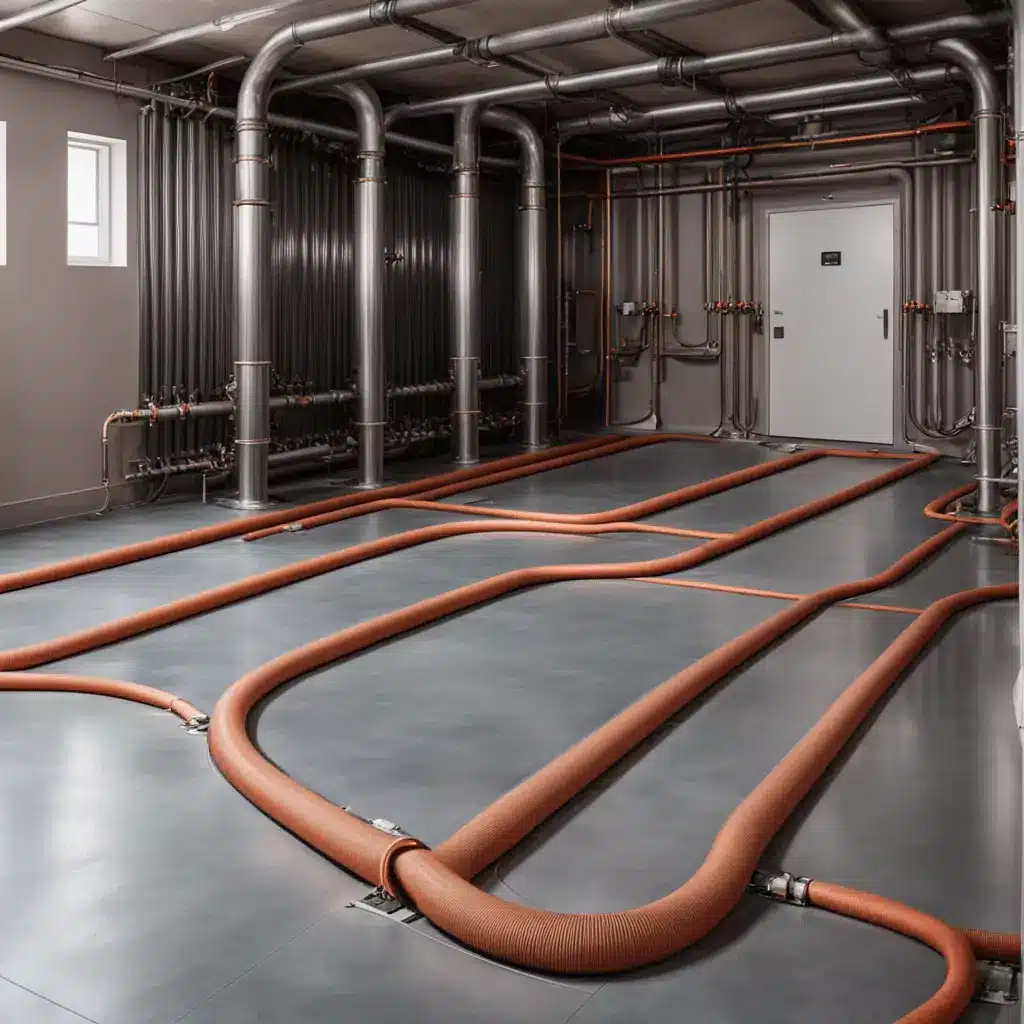
Are you intrigued by the idea of underfloor heating but unsure about how it works in conjunction with a boiler? Whether you’re a business owner or a facility manager, understanding the synergy between underfloor heating and boilers is crucial when considering an upgrade to your heating system.
In this comprehensive guide, we’ll delve into the mechanics of underfloor heating, the types of boilers that work best with this system, and address common questions that companies often have when contemplating the integration of underfloor heating in their buildings.
How Does Underfloor Heating Work?
Underfloor heating is a revolutionary heating method that ensures consistent and comfortable warmth throughout a space. This innovative system operates by installing pipes or electric heating elements directly beneath the floor’s surface. These elements generate heat, which is then radiated upwards, enveloping the room in a cosy embrace.
The heart of the underfloor heating system lies in the boiler. The boiler heats water, which is then circulated through the pipes or elements beneath the floor. As the heated water flows, it releases warmth that gradually rises, providing uniform heat distribution and eliminating the cold spots often associated with traditional heating methods.
Types of Underfloor Heating Systems
Two primary types of underfloor heating systems are commonly used: electric underfloor heating and water underfloor heating.
Electric Underfloor Heating
Electric underfloor heating relies on heating cables or mats installed beneath the floor surface. These cables or mats are connected to the electrical supply, generating heat when an electrical current passes through them. Electric underfloor heating is known for its ease of installation, precise temperature control, and suitability for various floor types.
Water Underfloor Heating
Water underfloor heating, also known as hydronic underfloor heating, involves circulating warm water through a network of pipes placed beneath the floor. This system can be connected to a central boiler, distributing hot water throughout the pipes. Water underfloor heating offers energy efficiency and is compatible with various heat sources, including boilers.
How Does Underfloor Heating Connect to a Temporary Boiler?
When opting for underfloor heating, you might find yourself in need of a temporary boiler, especially during renovations or emergencies. Connecting a temporary boiler to your underfloor heating system is a straightforward process.
The temporary boiler acts as a heat source, providing warm water that circulates through the underfloor pipes or elements, just like a permanent boiler. This ensures uninterrupted heating while your primary heating system is undergoing maintenance or repair.
Choosing the Right Boiler for Underfloor Heating
Selecting the optimal boiler for underfloor heating depends on several factors, including the size of the space, efficiency goals, and available fuel sources.
Types of Boilers for Underfloor Heating
Electric Boilers
Electric boilers are an excellent choice for underfloor heating systems. They offer precise temperature control, easy installation, and lower upfront costs compared to some other options.
Gas Boilers
Gas boilers provide rapid heating capabilities, making them suitable for larger spaces. They use natural gas or propane to heat water, which is then distributed through the underfloor pipes. Gas boilers, however, may have higher installation costs and require proper ventilation due to combustion processes.
Oil Boilers
Oil boilers are another option, particularly in areas without access to natural gas. They operate similarly to gas boilers by heating water, which is then used for underfloor heating.
Hire Underfloor Heating with Ideal Heat Solutions
Understanding how underfloor heating works with a boiler is essential for making informed decisions when upgrading your heating system. Whether you choose electric or water underfloor heating, the integration of a suitable boiler ensures efficient heat distribution and maximum comfort in your commercial or industrial space.
FAQs about underfloor heating
Do I need a boiler for underfloor heating?
Yes, a boiler is essential for underfloor heating as it provides the heat source required to warm the water that circulates through the underfloor pipes or elements.
Can you install underfloor heating if you have a combi boiler?
Yes, underfloor heating can be installed with a combi (combination) boiler. However, it’s important to ensure that your combi boiler has sufficient capacity to meet the heating demands of both the underfloor heating system and other heating needs.
Are there any risks with using underfloor heating with a combi boiler?
While it’s possible to use underfloor heating with a combi boiler, there are some considerations. Combi boilers are designed to provide instant hot water and may not be suitable for underfloor heating systems that require continuous warm water circulation. Consulting with heating experts can help address any potential risks or challenges.